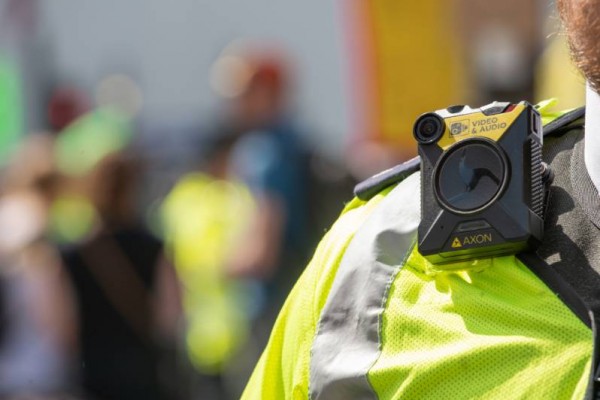OBSCC responds to DPDIB Committee, Police want LFR in body-worn cameras
16/05/2023 | Biometrics and Surveillance Camera Commissioner
The Biometrics and Surveillance Camera Commissioner (OBSCC) has expressed concerns regarding clauses 104 and 105 of the Data Protection and Digital Information (No.2) Bill (DPDI No.2 Bill), which abolish the office of Commissioner for the Retention and Use of Biometrics and repeal the duty on the government to publish a Surveillance Camera Code of Practice.
Responding to the DPDI No.2 Bill Committee, Professor Fraser Sampson confirmed the OBSCC is responsible for reviewing the retention and use of DNA samples, DNA profiles, and fingerprints by the police, as well as overseeing compliance with the Surveillance Camera Code. However, the Commissioner argues that the Bill fails to address "non-data protection" issues concerning public space surveillance, such as police accountability in their use of new technology.
Included in its submission, the OBSCC presented an interim report on oversight of biometric data to the DPDI No.2 Bill Committee. The report outlines the urgent need for governance and oversight of new and advancing surveillance technologies, which have the potential for enormous harms, as well as public anxieties over civic freedoms. It also notes that surveillance oversight is overburdened and under-resourced and that the DPDI No.2 Bill's reduction of surveillance-related considerations to data protection compares unfavourably to regulatory approaches in other jurisdictions.
One of the more contentious points included in the annexe has raised concerns in the media; as The Guardian reports, UK ministers are considering embedding facial recognition technology in everyday policing, including body-worn cameras. Point 16 of the interim report states: "the Policing Minister expressed his desire to embed facial recognition technology in policing and is considering what more the government can do to support the police on this. Such embedding is extremely likely to include exploring integration of this technology with police body worn video."
In related news, The Guardian reports South Wales Police have confirmed they intend to use live facial recognition at a Beyonce concert in Cardiff. In a statement responding to the news, Mark Johnson, Advocacy Manager at Big Brother Watch, said, “It is an outrage that South Wales Police have chosen to deploy live facial recognition at Beyonce’s Renaissance show, which celebrates diversity. They should reconsider and drop their plans to use this rights-abusive technology on innocent members of the public this evening.” Taking a similar stance, the Open Rights Group "has serious concerns about the creeping use of this technology, especially when its accuracy and efficacy is seriously under question."
In related news, The Telegraph writes the UK is sleepwalking into a Beijing-style surveillance nightmare.

What is this page?
You are reading a summary article on the Privacy Newsfeed, a free resource for DPOs and other professionals with privacy or data protection responsibilities helping them stay informed of industry news all in one place. The information here is a brief snippet relating to a single piece of original content or several articles about a common topic or thread. The main contributor is listed in the top left-hand corner, just beneath the article title.
The Privacy Newsfeed monitors over 300 global publications, of which more than 3,250 summary articles have been posted to the online archive dating back to the beginning of 2020. A weekly roundup is available by email every Friday.

